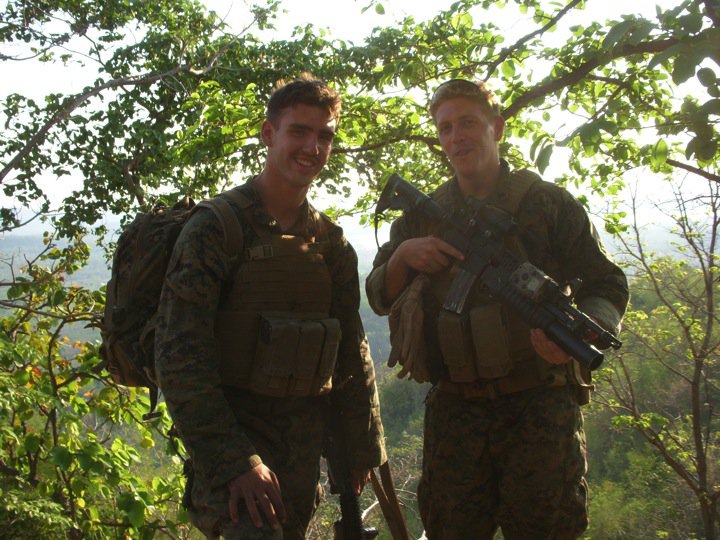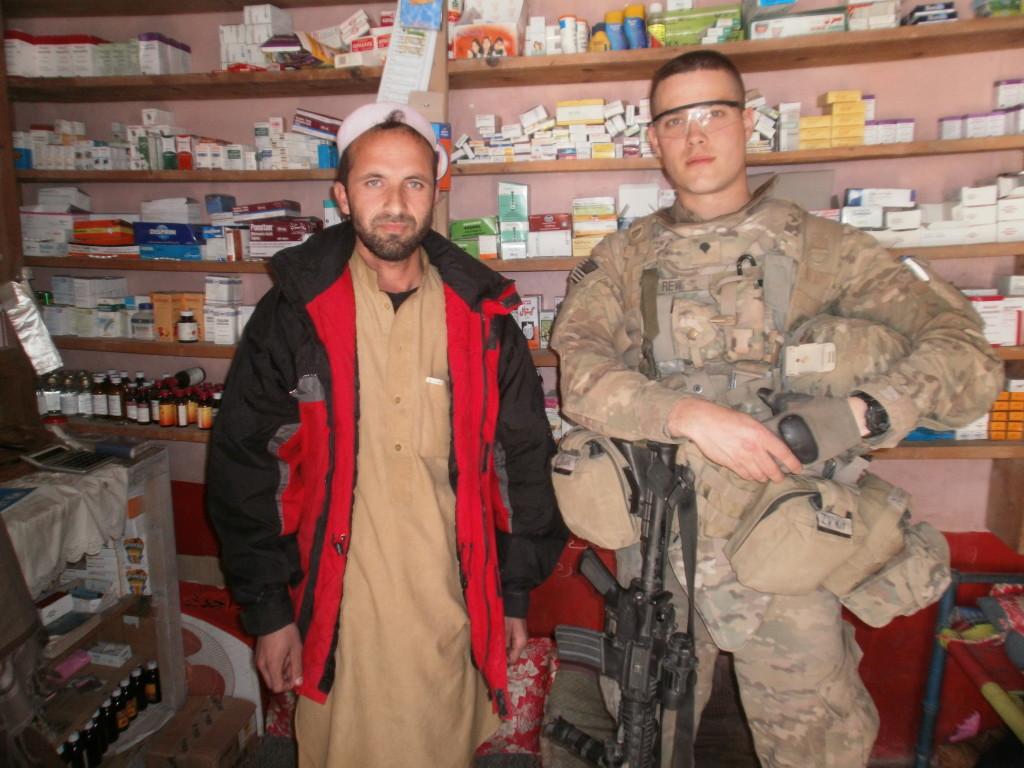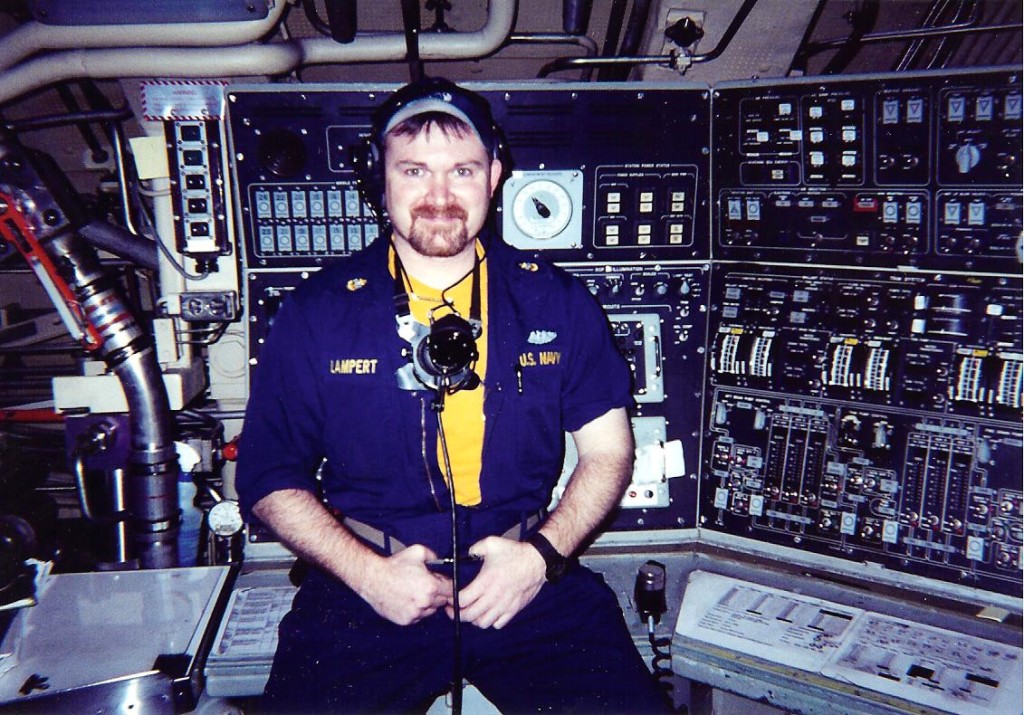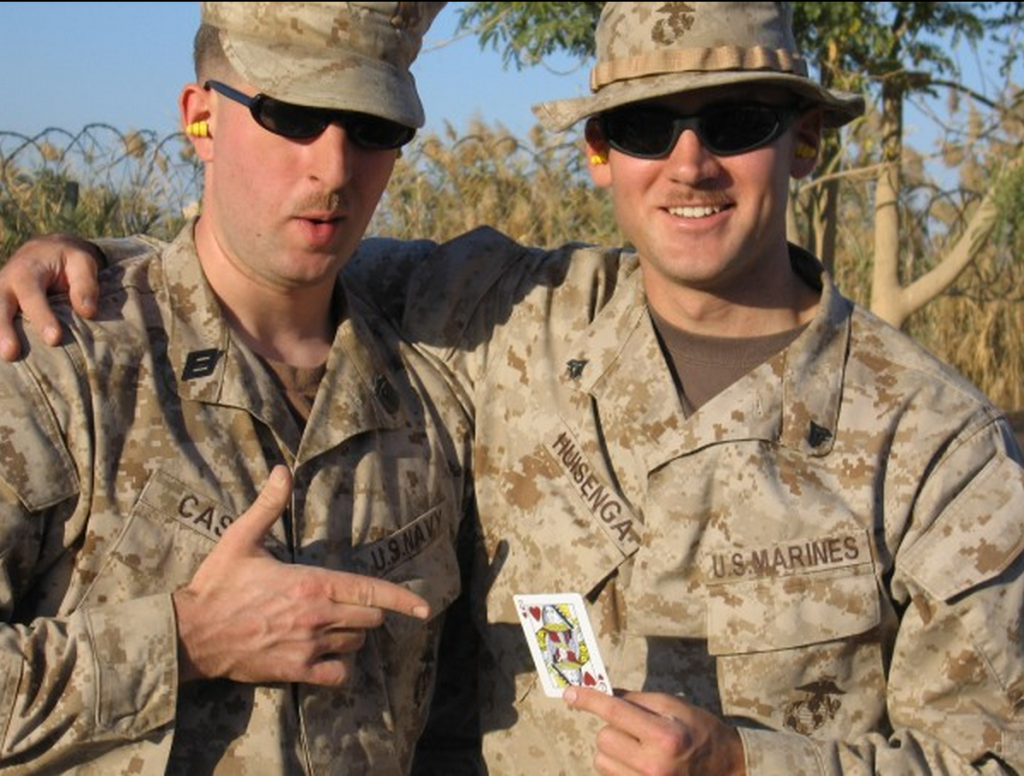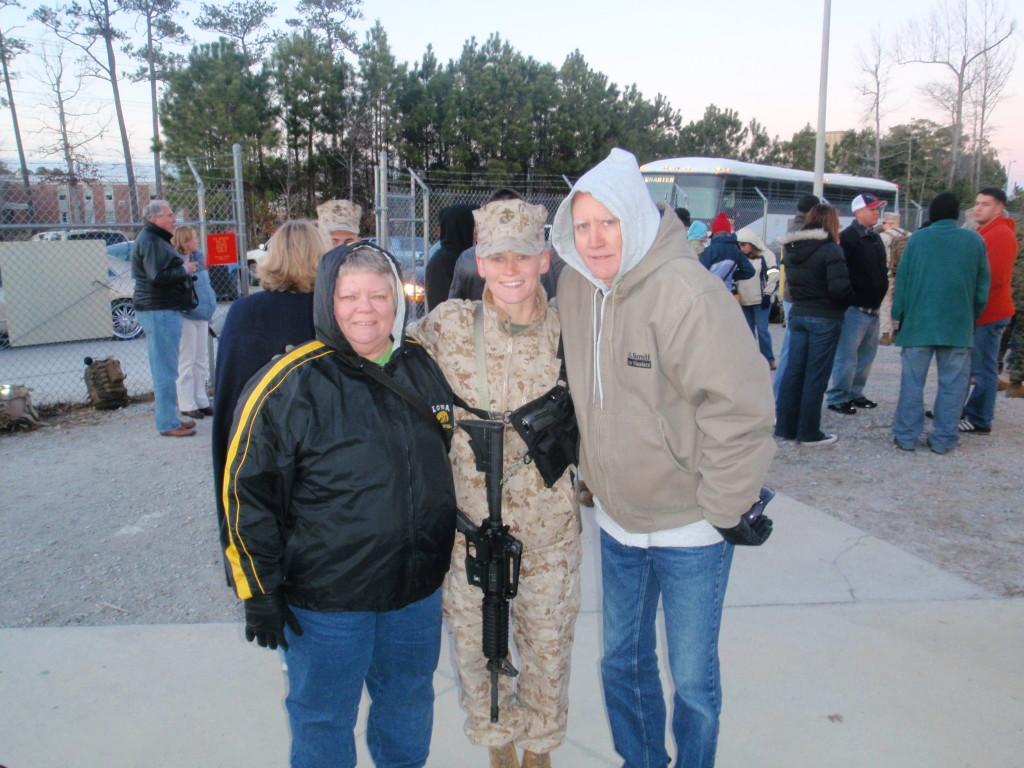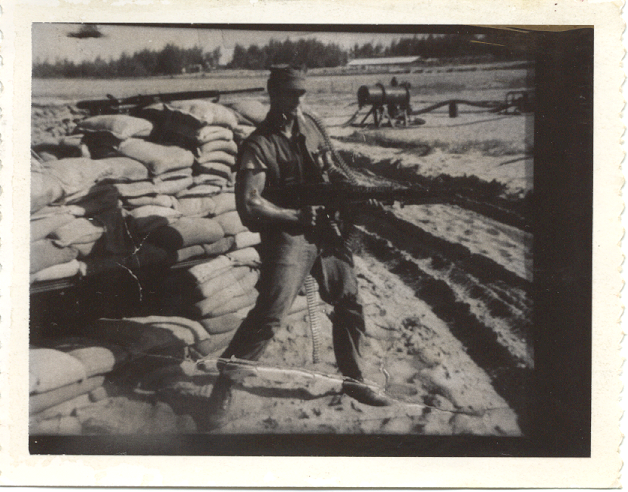Your donation will support the student journalists of Iowa City High School. For 2023, we are trying to update our video and photo studio, purchase new cameras and attend journalism conferences.
Veterans Day: City Alumni Commit Lives to Serve
November 11, 2013
Watching fellow soldiers die, long nights with little rest, and doing the dirty work with little sympathy and understanding. Risking every day comforts and their lives, former City High students share what it is like to serve our country.
“Living without so many of our comforts, seeing people suffer and die, it made you appreciate everything more, from your family, to a hot shower, to a warm bed, to getting to choose what you eat. When you come home and other people don’t, you learn to appreciate the simple fact that you’re alive.” Luke Huisenga, ‘99 said.
-Collin Raaz-
Passing three mile fitness tests, hiking through jungles, and climbing with packs over mountains were no challenge for varsity cross country competitor and Iowa City native Collin Raaz ‘04. Not being able to spend free time with friends and family and not having time to relax were more difficult adjustments.
Going into the Marines may have been a large change in the life of Raaz, who served two tours with Operation Enduring Freedom and was a member of the Marines for four years, but the transition was smoothed over with training, team building, and letters from home.
“I’d say the best part of any deployment is mail day. Depending on where you are it might take a couple months, but they fly your mail out in these huge bags the size of a small car, and it’s like Christmas morning. You have to dig through them to find the boxes your friends and family sent and you get junk food, new books and magazines and most importantly, new socks.” Raaz said.
After studying engineering and architecture at Iowa State for two years, Raaz dropped out and enlisted in the Marines in 2007. He started as a basic infantryman, and finished as a Scout Sniper team leader up until an IED (improvised explosive device) accident in June of 2011.
“I learned to take personal responsibility for my work. You learn that for a unit to work properly everyone has to be dependable to everyone else. And if you make sure you do your own job as well as possible the rest takes care of itself.” Raaz said.
Raaz now lives in Phoenix, Arizona and is enjoying freedoms of a civilian and being a sniper instructor. His determination and hard work vaulted him through the ranks, and he gives the same advice to students looking at joining the military.
“Don’t pick the easy route, go after the most challenging and difficult path you can find. The harder you’re willing to work and the more you’re willing to chance failure, the greater your time will be. They don’t give the best missions to underachievers, they go to those who are willing to work the hardest and take the toughest jobs.” Raaz said.
-Chris Rew-
Cross Country and track runner, band member, paintball player. An average teen male, stepped up to protect his country by helping others achieve their freedom. Part of Operation Enduring Freedom in Afghanistan, Chris Rew ‘03, has been overseas twice since enlisting in the military in July of 2009.
After graduating from UNI with a B.A. in Microbiology in the fall of 2008, Rew felt he had a duty to our country.
“I always felt a calling to join the military and be part of the protection of our country. We live in one of the safest and most prosperous countries in the world, one cannot truly appreciate it without experiencing the sacrifice it requires to maintain.” Rew said.
Thinking it to be selfless and noble to enlist, Rew has felt like he needed to join since he was a child. Many of his friends had joined, and one of his City High friends was killed early on in the war in Iraq.
Over the past four years, Rew has been a combat medic in the Iowa Army National Guard, a member of an infantry platoon, and a flight medic.
Rew has searched cars for drugs and weapons, flown medevac coverage in the back of a helicopter, and done countless foot patrols. Not being able to disclose where he was stationed, or what he had been doing made communication with family limited.
“You meet people from all over the U.S. and the world that are trying to make an opportunity for themselves. You get to work with people from differing socioeconomic classes, backgrounds, core beliefs, and religions all come together to do their jobs together in order to succeed.” Rew said. “We all were strong because of each other and that is what you focus on.”
Rew strongly encourages others to consider joining the military, and help protect the comforts that we have, saying it can change your life.
“You have to do it because it is something you want to do to better yourself and help your nation. You will come out of the military stronger both mentally and physically. It will force you to mature and learn how to work in a team with others. It absolutely can be the opportunity of a lifetime.” Rew said.
Rew is still serving as a flight medic, while again a student at UNI working towards achieving his Masters in Biology.
“The Army and the experiences it has held for me are definitely a major part of who I am now. I really took for granted everything that I had as a citizen of the U.S. We have everything at our fingertips and are comfortable all the time, I feel that I appreciate the opportunities and comforts of home so much more now.” Rew said.
-Jerry Lampert-
The Silent Service. Long months with little communication, no contact, and no fresh air. On the underwater front lines, Jerry Lampert ‘85 know what it’s like to virtually lose months of his life at a time.
“It was very hard to deploy under water for many months with no contact with your family, children and friends. Silent and deep… The longest I ever stayed underwater was 115 days. I was gone from the United States for almost five months and from the outside world for four months. I remember when I came back to the United States things seemed to move so fast and all I wanted to do was let the wind blow in my face.” Lampert said.
Lampert served with distinguished valor as a Nuclear Missile Technician during the Cold War, Persian Gulf War, Iraq War and the Afghanistan War, spending 11 years of his life underwater. Both of Lampert’s brothers also served in the Navy.
The only form of communication on the submarines were “family grams” via low frequency radio receptions, 20 words from your loved ones.
“We [veterans] share stories and laugh about the funny things, which is easier than talking about when you came home and your baby daughter had started talking or your son is riding a bike, which they weren’t doing before you left for deployment.” Lampert said.
Lampert became so close with the men he worked with that his son is named after two of his friends from the USS Will Rogers SSBN 659.
“In the Submarine force you rely on those other men to protect you, believe in you, care for you, share with you.” Lampert said. “You learn to love being who you are. Everyone is very honest and trustworthy.”
The underwater members of the Silent Service are not allowed to disclose where they went, even today.
“Our job was to be silent and undetectable as a deterrent to nuclear war.” Lampert said.
-Luke Huisenga-
Late nights, dark skies, and MRE*s are a drastic change from college food, writing for your high school’s newspaper and being on a rowing team. Luke Huizenga ‘99 has had his fair share of both worlds.
“I liked the idea of doing something challenging, physically demanding, and team-oriented. It was also in the wake of September 11th. We were already in one war and it was looking like we were going to start another. I wanted to do my part.” Huisenga, who enlisted after college at Boston University and Law School at University of Iowa, said.
Huisenga deployed to Iraq with the Marines Corps twice, each time for about seven months. After going through five months of basic training, Huisenga arrived at his unit in 29 Palms about three months before his first deployment.
“Life was kind of miserable, I didn’t really have friends there and new Marines get yelled at and messed with quite a bit.” Huisenga said. “I think my deployments were hardest on my parents. It was easier for me, I knew what was going on every day, I could feel like I had some control over my own safety, for them I think it might’ve been different. Every minute I was gone could feel dangerous, they didn’t know when I was on patrol or when I was cleaning floors. They put on a brave face and were always very supportive, but I know it was difficult.”
After his second deployment in 2006, Huisenga came back home to attend law school in Iowa City and spend one more year in the Marines, training new Marines.
“When you first come back little things stick out, being able to pick what you eat for dinner, girls perfume, good heating/AC and a comfortable bed. And then big things, like being alive and being able to see your family again. But going to Iraq didn’t make me a great or wise person. I think I’m still thankful, but I don’t think you’re ever as thankful as when you first get back.” Huisenga said.
Huisenga rejoined the Marines as a lawyer (judge advocate) in 2011, where he is an officer in the legal department “at a safe desk with hot coffee instead of a desert and guns.”
Huisenga is still a member of the Marines, and admits that being in the Marines has made him more organized and responsible, and that he is still learning to be thankful for his everyday life.
“What matters is your small piece, your mission, the people who are there with you, and doing the best you can in a situation that isn’t and never will be perfect.” Huisenga said. “We get caught up on so many other things, it’s special to be happy just to be alive.”
-Lawrence Calkins-
One of seven guys in the City High class of 1942 to go into the service, Lawrence Calkins ‘42 took his Rifle Club experience with him to enlist early to the Marines for three years, before he could be drafted.
“Going in early might have saved my life because I was put in a lot of job positions, while others were put on the front.” Calkins said.
After boot camp in San Diego and learning how to crease his pants, salute ranking officers and be accounted for every morning, Calkins was sent to Oklahoma to learn how to weld aluminum. His other jobs included being an aid in a kitchen, repairing airplanes, and sending necessities to soldiers on the front.
“Some guys just couldn’t take it, it was a different kind of life and they weren’t used to it so they would skip out, but they’d catch them and either give ‘em another chance, or send ‘em to prison. Everybody was just wandering around trying to have a good time because they never knew when they’d be coming back.” Calkins said.
Calkins admits to having “checked out the back way” himself, going hiking in the mountains or visiting comrades relatives, but for the most part, says the corporal life suited him.
“I liked the work I did and never had any trouble that way. And I understood the instructions they gave me, so I got along okay.” Calkins said.
Stationed 40 miles from Pearl Harbor, Calkins admits that the toughest thing he had to learn was to get along with his fellow man, with the exception of occasionally having to do the dirty work.
“I had to carry food from the kitchen to one of the four dining halls. I had to carry a tray with meat and juice in it, it was hard to balance, and I spilled some while I was walking. The cook followed the trail of juice and found out it was me. He was a navy, and I was a marine, they didn’t get along too well anyways. So he made me clean the grease well. They’d have all those kinds of messy jobs to give you when you screwed up. It would learn you to be careful the next time.” Calkins said.
-Jennifer Keisler-
Being in the military and committing to serve your country is hard enough. Being a girl and making the same commitments is a whole new challenge. Jennifer Keisler was raised in Iowa City, and attended City High school, and graduated in 1996. After graduating, she decided to join the Marine Corps.
“I didn’t know what I wanted to do when I grew up and I thought that going to college would be a waste of money, I didn’t want my parents to carry that burden and was not too excited about working at HY-VEE as a career. So when I heard one of the guys during lunch in the cafeteria talking about joining the Marine Corps it peaked my interest and I asked him to let the recruiter know that I was interested. I ended up going to boot camp and the guy who told me about it backed out.” Keisler said.
Keisler enrolled in February of 1996, and went away to boot camp in August. After being in the Marine Corps for over 12 years, Keisler was deployed to Iraq in 2009 to participate in Operation Iraqi Freedom. Keisler is a Financial Management Technician, “the bank in a combat zone.”
After returning from Iraq, Keisler was given 30 days leave, then was put right back to work. She is currently with Combat Logistics Regiment 17 in Camp Pendleton, CA. Keisler has been a part of the Marine Corps for 17 years.
Being overseas in Al Asad, Ramadi and Al-Taqqadum, Keisler says she wrote emails to her parents and boyfriend at least once or twice a week.
“I missed them terribly but you get used to it. It is a part of growing up.” Keisler said.
Being a part of the military has changed many people’s lives, including Keislers’.
“I know that being in the military has shaped me to be the person that I am today. I got a really good base from my parents and the Marine Corps molded me into a better person. But the war specifically has not changed me in any way besides it maybe made me a little bitter toward other cultures that are trying to hurt us because of who we are and because our beliefs are different from theirs.”
-Richard Gordon-
Senior year of high school, 1963-4. President Kennedy was shot and killed, sending the world into mass confusion and chaos. Senior Baseball player and wrestler Richard Gordon walked down the hallway in a daze, and heard another student joking about the incident. An angry teacher grabbed the student and slammed him against a locker, beginning to take out his anger of the shooting on the student. Gordon pulled the teacher off the student. Emotions were running high, tears were in the eyes, and everyone was in shock. Times were changing.
Two years later, Iowa City bred Gordon was drafted into the Marine Corps, January of 1996.
After doing basic training at Camp Pendleton, CA for six months, Gordon was shipped overseas to Vietnam. Stationed in Vietnam for 13 months and 20 days,Gordon kept in touch with his family through letters.
“I also wrote numerous letters, once a week, to my family members. Those letters were the worst part of being away. Hearing what they were doing back home,and wishing I could be there with them.” Gordon said.
During the war, Gordon spent time in Phu Bai and on Calico Island, off the coast of Vietnam. While there, when he wasn’t writing home, he would be playing football, having boxing tournaments, swimming or having cook outs with the members of his company.
“My time spent in Vietnam was a great time, spent with good friends, minus the female companionship.” Gordon said.
After returning home in January of 1968, Gordon used his experience from the military and his memories from his senior year of high school to become involved in Law Enforcement. He has spent 34 years in the field, and is learning to continue moving on with his life.
“I still have occasions where I sit and think back about my time spent in the service, but it seems to be less often.” Gordon said.
